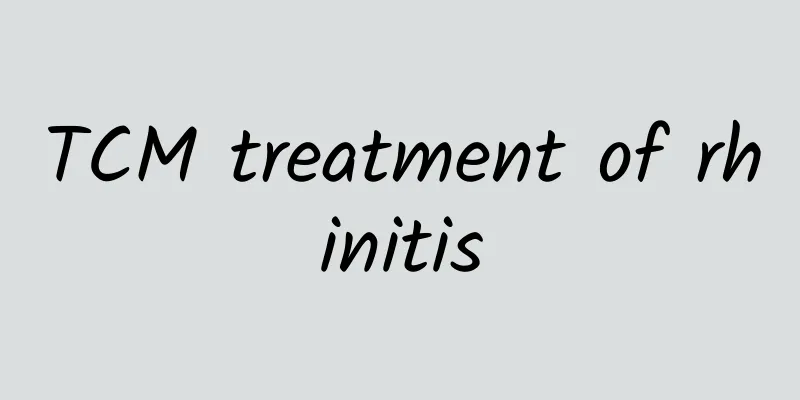Side effects of estrogen medications

|
Sometimes people can only choose some hormone drugs to treat the diseases they suffer from, and only by using such drugs can the disease be controlled or cured. However, at the same time, the side effects of estrogen drugs also need to be understood. Such drugs will bring more side effects, such as the possibility of infection; they may also affect the skin, or cause a lot of weight gain in a short period of time. Common side effects of hormones include: 1. Infection: Because it can inhibit the body's response to inflammation and reduce the body's ability to resist infection, superficial or mild infections may develop into systemic infections, and dormant infections may turn into active infections, which can make potential lesions such as purulent lesions and tuberculosis active and spread. Therefore, you should pay attention to preventing infections and carefully observe the condition. If necessary, reduce the dosage and stop using the drug in time. When acute infection and poisoning occur, it must be used in combination with sufficient and effective antibacterial drugs. Patients with tuberculosis should use it with sufficient anti-tuberculosis drugs. 2. Body shape changes: Many patients receiving hormone treatment may experience body shape changes, which may affect the patient's spirit and mood. Since long-term use of hormones can redistribute fat, patients may have moon face, buffalo hump, trunk obesity, thin limbs, centripetal obesity and other body shape changes. They may also have acne, hirsutism, purple skin lines and other changes that affect their beauty. 3. Diabetes: Hormones can increase liver glycogen, supplement blood sugar, and induce diabetes. When using large amounts of corticosteroids, you should pay attention to changes in blood sugar and urine sugar. If hyperglycemia occurs, hypoglycemic drugs should be given for treatment. Insulin treatment can be used when necessary. However, as the dosage of hormones decreases, the dosage of hypoglycemic drugs or insulin can be reduced. 4. Osteoporosis: Hormones can cause bone decalcification and turn into osteoporosis. Osteoporosis refers to the reduction of bone mass per unit volume, just like reducing the amount of steel bars in building a house, which can easily cause fractures. Aseptic bone necrosis, especially bone necrosis occurring in the femoral head, is also a common complication. However, its pathogenesis may be bone necrosis of the femoral head caused by blood circulation disorders and capillaries in the femoral head. Because the cause of necrosis is not bacterial infection, it is also called aseptic femoral head necrosis. Therefore, patients who use hormones for a long time must have bone density measurements regularly to know their condition. At the same time, they should take vitamins and calcium preparations while taking hormones. This can reduce the bone loss caused by corticosteroids to prevent and treat osteoporosis. Appropriate physical exercise can promote blood circulation in the bones, promote metabolism, and help prevent and treat osteoporosis and femoral head necrosis. Calcium supplementation is a long-term task, and patients must be consistent and persistent in order to achieve better results. 5. Peptic ulcer: Hormones can stimulate the secretion of gastric acid and pepsin. Excessive digestive fluid can often cause gastritis, gastric and duodenal ulcers, and even perforation and bleeding. If patients have gastrointestinal symptoms, they should take antacids together with hormones to protect the gastric mucosa from damage. Commonly used drugs in clinical practice include ranitidine, Chen Xianglu Bailu, etc., which can be used as a synergistic drug for oral hormone drugs. 6. Electrolyte imbalance and hypertension: Hormones can cause water and sodium retention and cause edema. Many patients have hypertension. Due to increased potassium excretion, patients often suffer from hypokalemia. For patients with congestive heart failure or obvious peripheral edema, hormones with little effect on water and salt metabolism should be used, and the patient's electrolyte balance should be checked regularly. Hormone drug treatment is often complicated by hypertension, especially in patients with lupus nephritis. At this time, on the one hand, the dosage of hormones should be reduced as much as possible, and on the other hand, appropriate antihypertensive drugs should be used, such as nifedipine and captopril. Although some antihypertensive drugs may have side effects on lupus constitution, they should still be used decisively after weighing the pros and cons. 7. Others: When corticosteroids are used in large quantities, patients may experience obvious excitement, irritability, euphoria, nervousness, insomnia, and may also develop depression or mental illness. Long-term and large-scale use of hormones may cause muscle weakness, muscular atrophy, and even myositis, increased intraocular pressure, and even glaucoma, and hypocortisone. Menstrual irregularities or even amenorrhea are also common. |
<<: The drug of choice for chronic aplastic anemia
>>: Side effects of ovulation-stimulating drugs
Recommend
What should patients with lumbar disc herniation supplement in their diet?
In life, more and more people suffer from lumbar ...
Coffee spots on baby's legs
The coffee-topped spots on the baby's legs ar...
The harm of baby's buttocks injection
Nowadays, many parents think that intravenous dri...
What is the TCM diagnosis of dizziness?
Dizziness is a common physical symptom in life. S...
The role of acupuncture slimming patch
There are so many ways to lose weight, including ...
How to treat gastrointestinal discomfort in autumn?
When your stomach is uncomfortable, not only will...
What should I do if my child still can't speak at the age of 2 and a half?
If a child still cannot speak by the age of two a...
Dandelion and wolfberry for prostate treatment
Everyone knows the dandelion plant. Most people k...
Can craniopharyngioma be cured?
If a tumor grows inside a person's brain, thi...
What to do if you can't cough up or swallow the phlegm in your throat? A good way to relieve cough and reduce phlegm
Alternating hot and cold seasons are most likely ...
Why do tonsil stones occur?
It is well known that tonsils are a type of nodul...
Causes of acne on the shoulder blade
There are many reasons for acne in the shoulder b...
What to do if you are color blind
Everyone should know about color blindness. This ...
How to treat mumps with cactus
Cactus is a succulent plant of the Cactaceae fami...
What happens if children eat red ginseng roots?
Red ginseng is a processed ginseng that has a goo...









